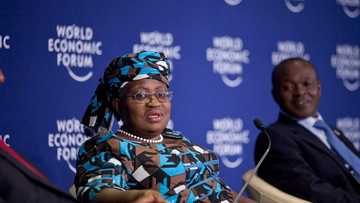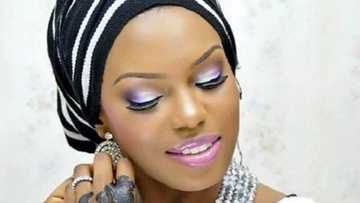Yoruba wedding traditions
The Yoruba culture is one of the parts of Nigeria society. There are more than forty million the Yorubas live in Nigeria. They have fascinating traditions, culture and also Yoruba traditional wedding ceremonies. The Yoruba wedding traditions are known amongst Nigerians. What is so special about them?
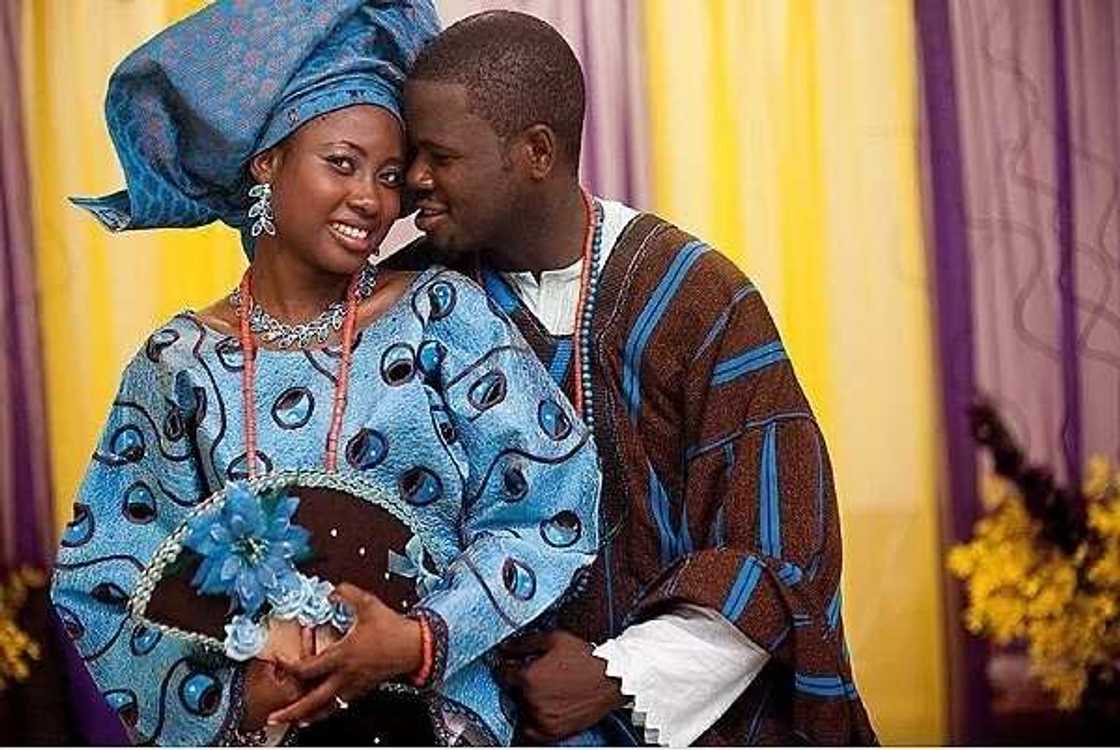
Yoruba people
The Yoruba are located in the North Central and South West part of Nigeria. They provide 22% of the Nigerian population. It`s also one of the largest ethnic groups in Africa. The Yoruba culture can also be found in diasporas around the globe, like in the EU, UK, USA, Togo, Ghana and Benin. Their diaspora consists of two major parts. One part of the Diaspora migrated to other countries during conflicts and economic problems in Nigeria in the 1960s and 1970s. Another part of migrants came to other countries as slaves of the Atlantic Slave Trade.
Yoruba culture

Read also
REPORT: How COVID-19 increased child labour in Lagos state (parents, children share experiences)
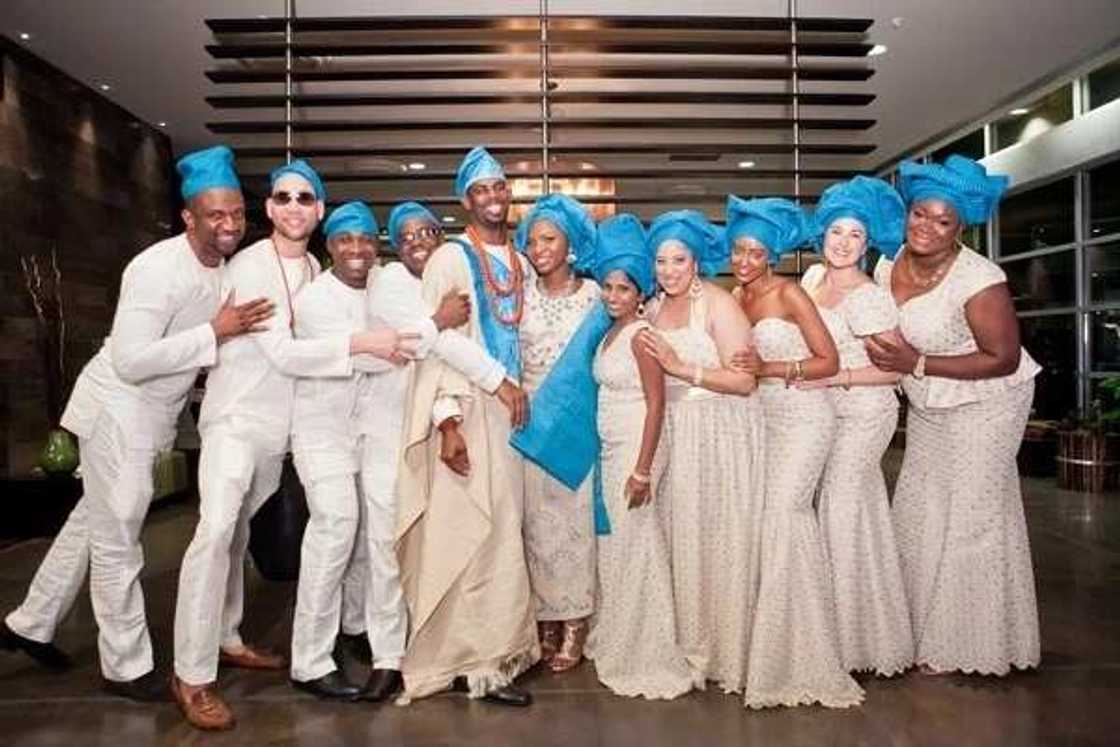
Source: UGC
The extended family handles the upbringing of the child in Yoruba with the help of the community. In the traditional society, a kid will be placed near a craft master to learn a specific profession. The children can also inherit professions of their parents. Boys can inherit the father`s profession. Girls can inherit the mother`s profession. Parents are responsible for feeding, upbringing and socialising of a child. According to the Yoruba wedding traditions, parents also take responsibility for the wedding.
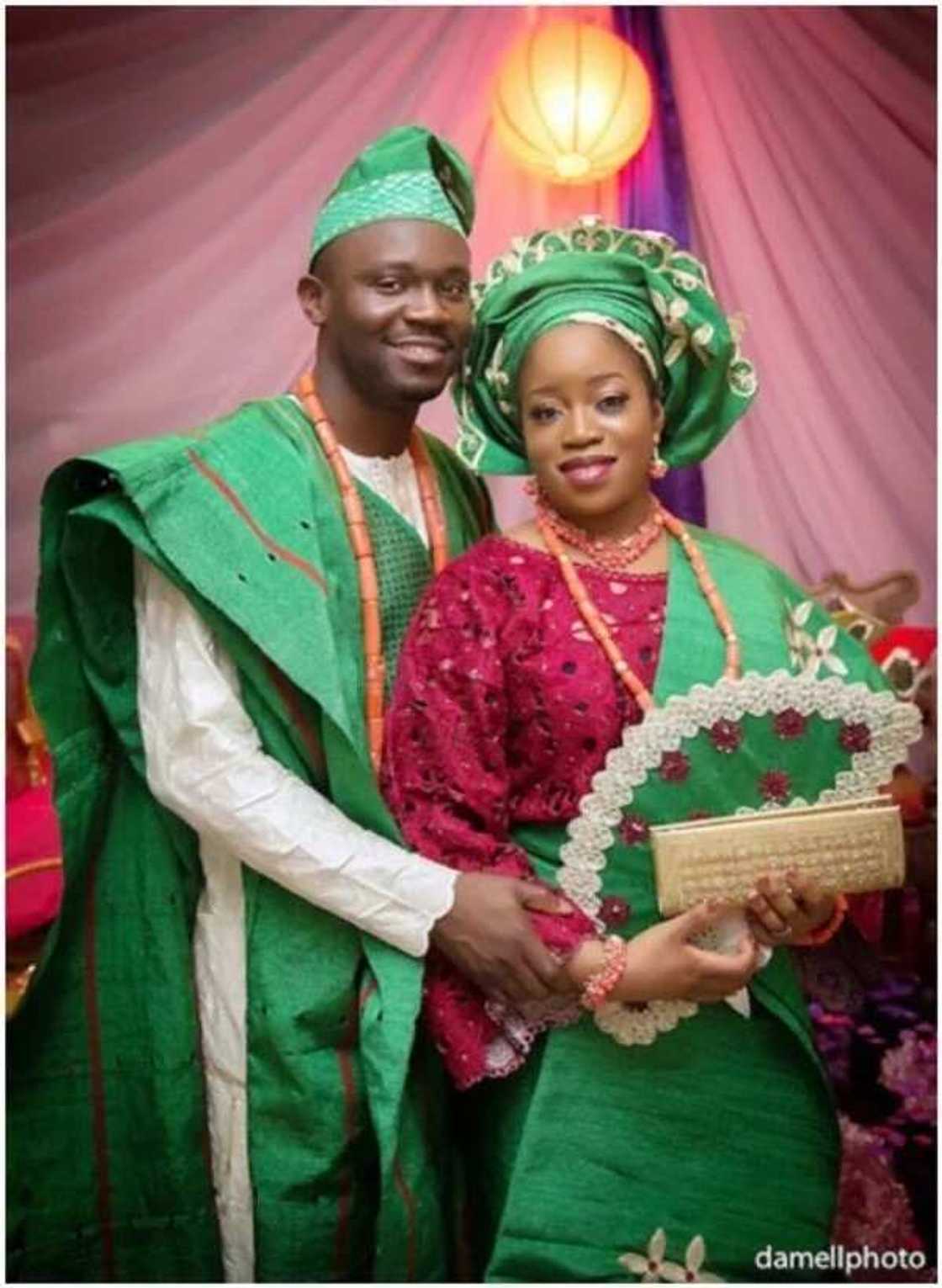
The wedding ceremony is a climax of the relationship between two young people. Usually, a young man finds a woman of his interest and starts the courtship process. Young people are dating for some time until the man proposes the woman to marry him. If she agrees, then the young couple informs parents about marriage. After that, parents of the future married couple arrange the meeting where they set a price for a bride, the ceremony process and day.
READ ALSO: Igala traditional attire
Yoruba wedding traditions
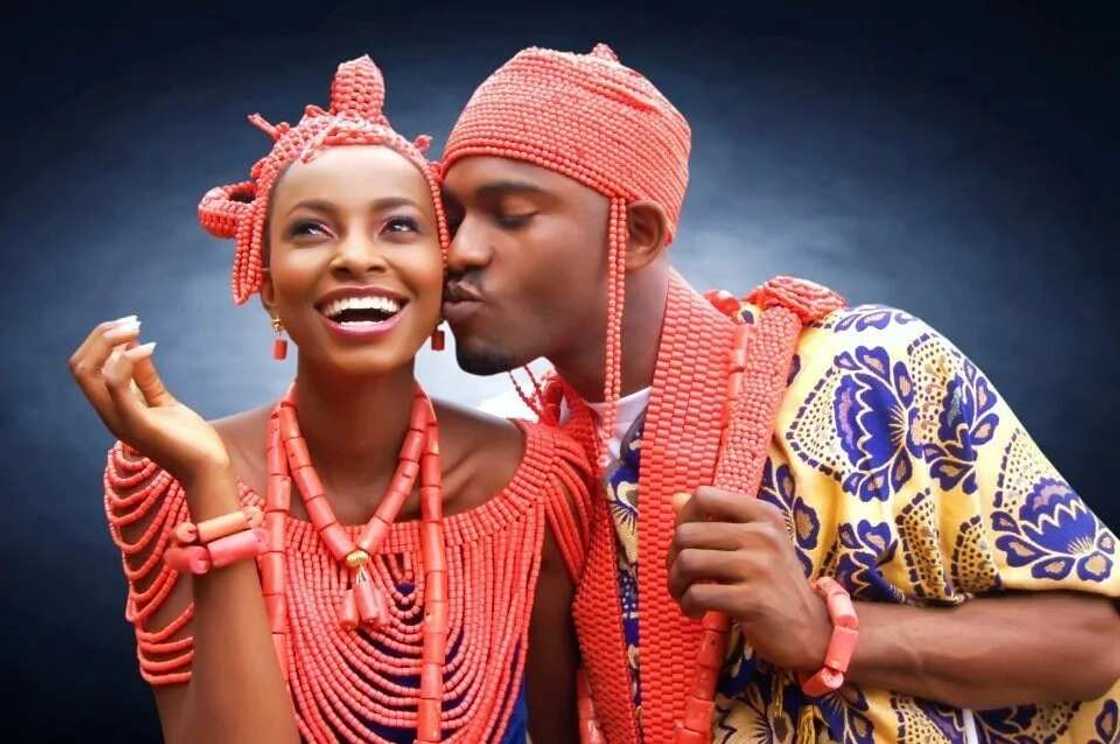
The traditional wedding or engagement ceremony usually take days or weeks before the white wedding ceremony. The bride`s parents usually cover all costs of the ceremony, but some families chose to split the costs. The entire ceremony is conducted by two people who are hired as representatives of the families. The groom`s family is represented by the Olapa Iduro/Alaga Iduro (standing policeman). The bride`s family is represented by the Olopa Ijoko/Alaga Iduro(sitting policeman).
Yoruba traditional wedding attire
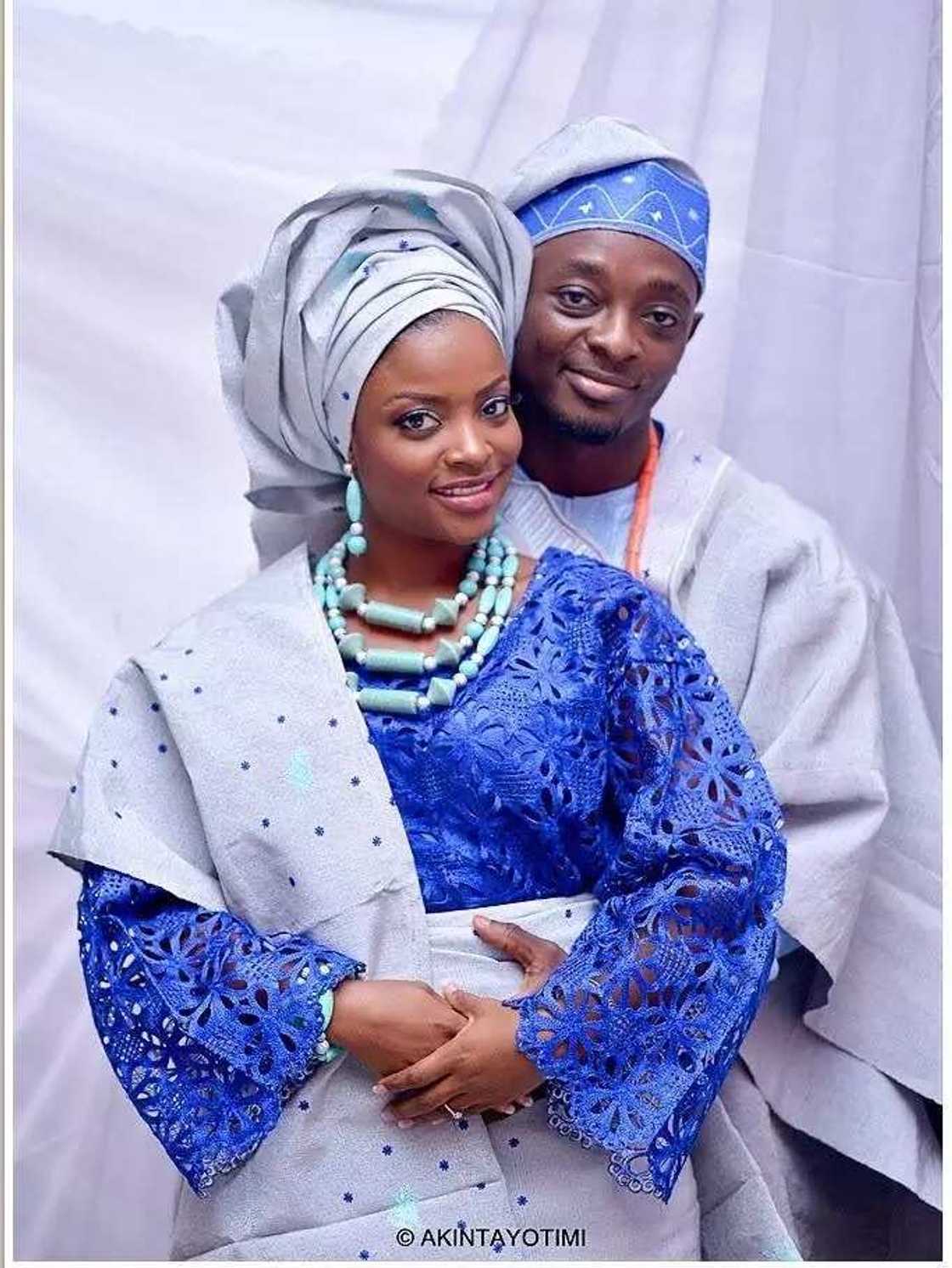
Source: Getty Images
The wedding is a huge case for the people of this culture. Therefore, the Yoruba traditional wedding attire should look exclusive for the bride and groom. Let`s take a look at the groom`s Yoruba traditional wedding attire:
- The Yoruba traditional attire for the groom in the wedding day is the Agbada. It`s a long and wide piece of clothing. Agbada can be decorated with special embroidery styles or beads. The colour of Agbada can be different depending on the predominant colour on the wedding, but the Yoruba usually chooses bright colours for the wedding. The fabric of the groom`s Yoruba dressing is handmade. The masters who produce this Yoruba dressing usually chose next primary colours: sapphire, cream and deep red.
- The upper layer for the groom is tailored specifically for him. The most chosen textile for this layer is Aso Oke textile.
- The fabric for the wedding suit is not cheap. Even if traditions ask grooms to wear for pieces of the groom`s attire and expensive fabric, parents usually buy less expensive fabric or cut the number of the clothes` part.
- The second part of the Yoruba dressing for the groom is called “Buba”. This piece of the gown is twice shorter than Agbada and reaches only the knees. Still, the sleeves of Buba are longer than the Agbada`s.
- The lower part of the groom`s garment is called Sokoto. They look like trousers, but they are much freer in the low part.
- The groom also wears a special head cover that can be seen only amongst people of West Africa.
- The final part of the groom`s garment is shoes. They are chosen according to the groom`s taste.
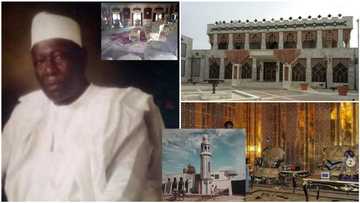
Read also
Meet northern Nigeria bizman who built N37bn gold palace with bulletproof gates in 1980s, owned one of world's most expensive jets (photos, video)
Yoruba traditional wedding dresses
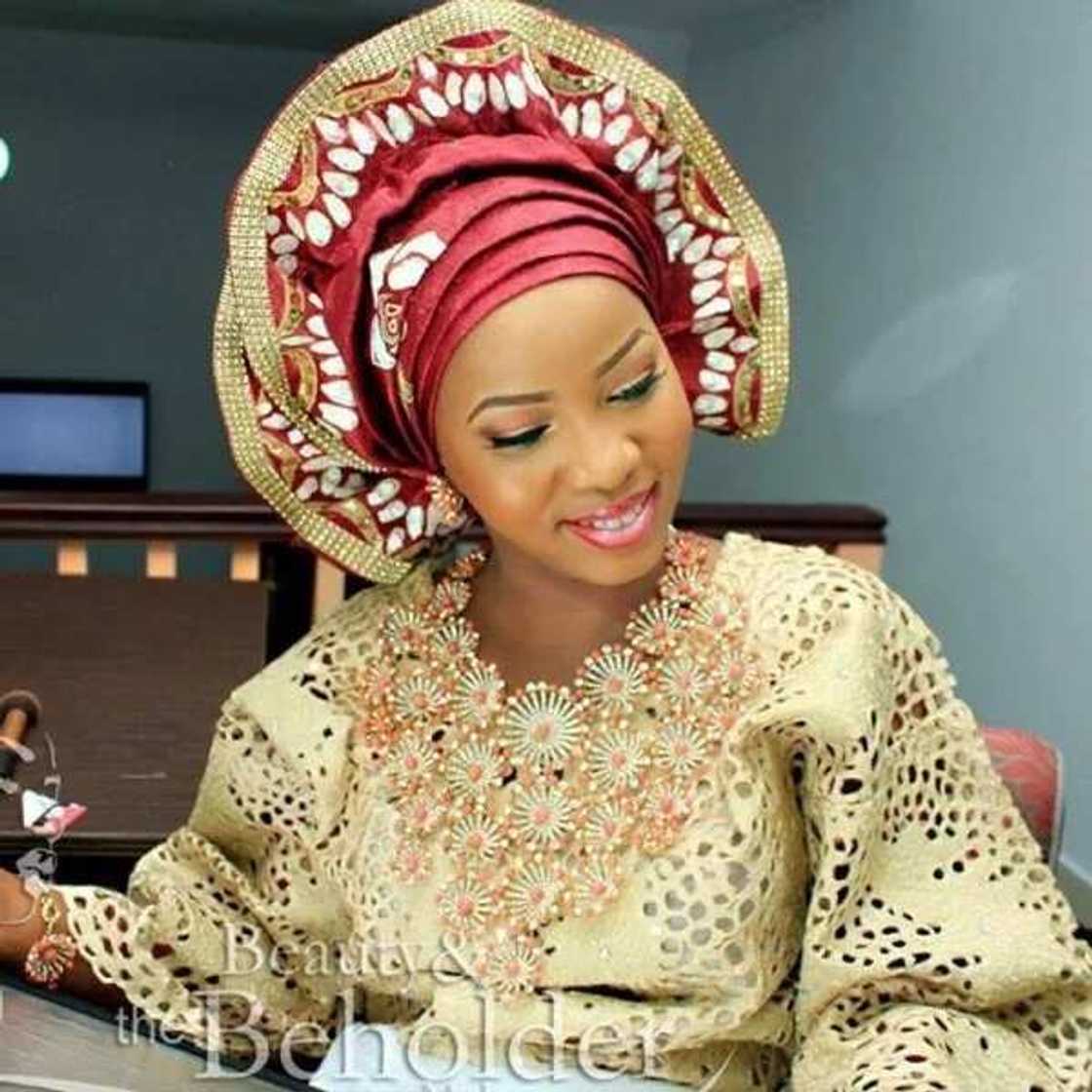
The main focus of any wedding ceremony is the bride. It`s her Big day, and everything should give according to the plan for this day. The Yoruba culture has many explanations and meanings of the Yoruba dressing. Still, let`s get back to the bride:
- The first thing you can notice on the bride is Iro. It translates into English as wrappings. The Iro covers the entire body of the bride. It`s tailored in the special way to underline the slim waist of the bride. The Iro is a part of the Yoruba traditional attire that attracts the most attention from men.
- The second part of the Yoruba traditional attire for the bride is the Buba. The fabric for the Buba may vary depending on the wealth of the family.
- Practical brides choose cotton fabric as it increases the density of the Yoruba dressing. Other brides prefer to stick to the lace materials as it perfectly underlines the female parts of the body.
- The Yoruba traditional wedding attire for brides also includes veiling. The Yoruba also has a tradition to unveil the bride on the ceremony. It symbolises the start for a new family.
- The Yoruba brides prefer to wear a lot of accessories for the wedding. They can wear earrings, rings, necklaces, bracelets and many other accessories. Many of the accessories can be bought specially for the wedding ceremony.
Yoruba wedding colours
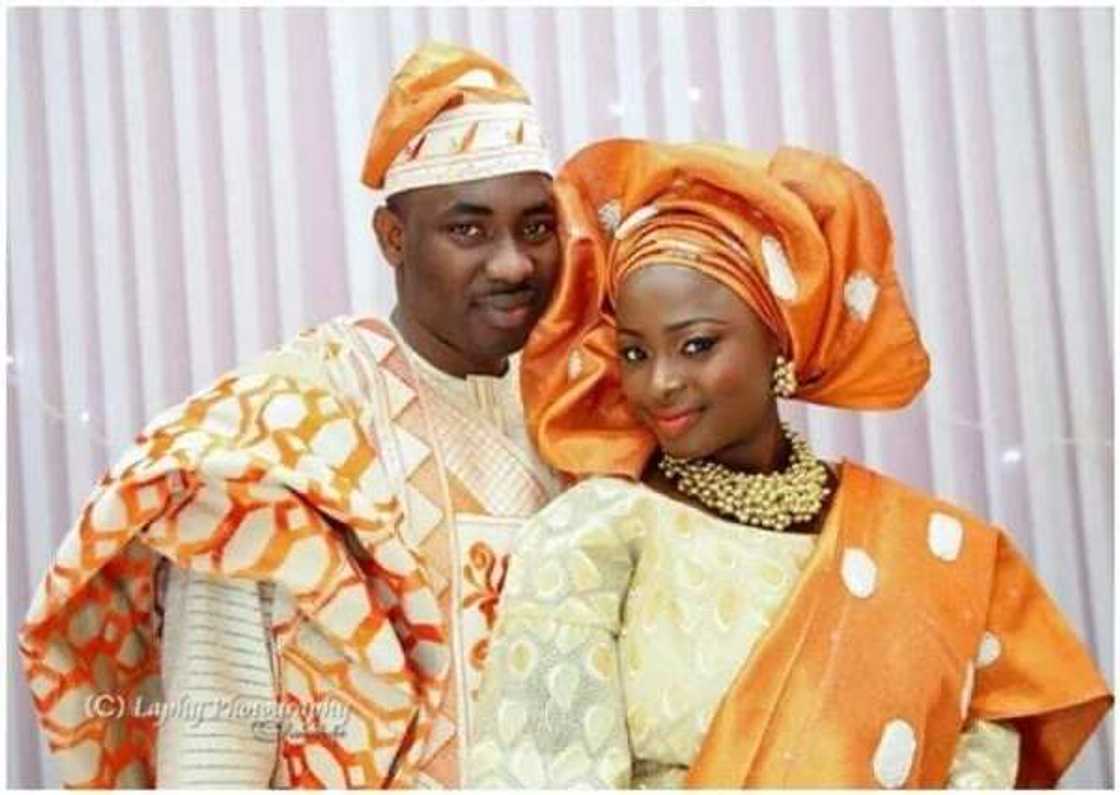
Husband and wife should be in harmony with each other. This rule is also true for the Yoruba wedding traditions. The families can choose next colour pattern for the Yoruba traditional wedding attire:
- Pink and Gold. These colours are preferred amongst rich people. Gold and pink colours can be a sweet combination for the wedding ceremony. The gold colour is a symbol of prosperity and richness in Yoruba culture.
- Cream and Green. These colours are the most loved amongst the Yoruba brides. Cream and green colours have deep roots in Yoruba traditions as they symbolise nature. The Yoruba brides chose them because they are neutral colours. They are perfect not to shade the bride's complexion.
- White and red. It`s a classic style for the Yoruba culture of the wedding. This colour option makes the Yoruba wedding closer to the Western type of wedding.
- Blue and gold. These colours are booming amongst wedding ceremonies. Men prefer to wear these colours as they are less bright and provocative.
- Blue and grey. The Yoruba couples prefer these two colours for the wedding ceremonies in the last few years. The combination of these colours makes the dresses more stylish and exclusive.
- Black and white. The couples who prefer the western type of weddings usually chose this combination of colours.
READ ALSO: Orthodox churches in Nigeria
Source: Legit.ng


